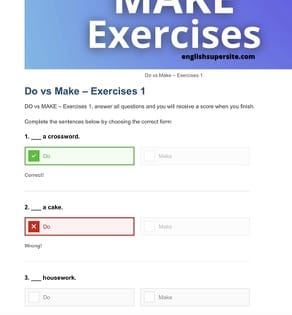
Learn English to Unlock Higher Salaries and Boost Your Career
In today’s interconnected world, it is essential to learn English to unlock higher salaries and boost your career opportunities. English proficiency is a key factor for career advancement and increasing earnings. Learning English is more than improving communication skills; it’s a strategic investment in your financial future. Whether you want to secure a promotion, change careers, or work abroad, English fluency can enhance your job prospects, boost your career, and help you earn more.
Learn English for Career Success and Higher Salaries
English is the primary language of international business. It is a key communication tool for companies globally. It is used for meetings, negotiations, and client interactions across borders. Many multinational organizations require their employees to have strong English skills, emphasizing the language’s importance in the global market. Therefore, professionals proficient in English often qualify for higher-paying roles. Their skills help them interact effectively in a global business environment, boosting their career and income potential.
Industries like finance, technology, and marketing prioritize candidates with strong English skills. Furthermore, fluency provides access to international job opportunities and positions you for roles that involve global stakeholders, creating lucrative career opportunities.
For more insights into the role of English in the workplace, consider exploring our article 12 Best Skills to Develop for Fast Career Growth. This can help you understand other competencies that complement English proficiency and enhance your career.
Job Opportunities and Mobility with English Proficiency
Fluency in English significantly increases your appeal to employers in both local and international markets. Whether you aim to work domestically or relocate, English proficiency broadens your career options. Moreover, employers are more likely to offer competitive salaries to candidates with English skills, as they contribute to market expansion and the company’s financial success.
For example, a software developer proficient in English can work for both local firms and companies in English-speaking regions like the United States, United Kingdom, or Australia. These markets often offer higher wages, better career growth, and exposure to new technologies. In addition, working in such environments allows for building a professional network, gaining experience with international standards, and collaborating with skilled colleagues from diverse backgrounds. These factors improve both earnings and career growth.
Career Growth, Leadership Roles, and Salary Negotiation with English Skills
English proficiency is a powerful tool for career growth. Employees with strong English skills often take on leadership roles, especially in companies serving international clients or working with global teams. If you want to lead a department or manage international projects, English fluency can make you a strong candidate for these responsibilities.
Being fluent in English also helps you negotiate higher salaries confidently during interviews or performance reviews, directly improving your financial situation. Additionally, this is especially true in sectors like tourism, education, and healthcare, where English-speaking employees are in demand and can earn higher wages.
If you want to improve your salary negotiation skills, check out our guide 20 Effective Salary Negotiation Strategies to learn how to leverage English proficiency for better career outcomes.
English for Professional Development and Career Growth
Learning English gives you access to many professional development resources. These include specialized courses, certifications, and workshops that enhance your skills. Many educational materials, training programs, and conferences are conducted in English, providing access to state-of-the-art knowledge and best practices.
By advancing your language skills, you can tap into global expertise, keep up with industry trends, and engage with experts and peers internationally. As a result, continuous learning enhances your competitiveness, diversifies your skills, and helps you earn higher salaries as you advance in your career, leading to long-term financial stability.
Consider joining international professional forums like LinkedIn Groups for Global Professionals, where you can connect with peers and stay updated with global trends. Engaging in these communities will help you expand your network and find new career opportunities.
Conclusion
Learning English is more than acquiring a new language skill, it’s a tool that unlocks better job opportunities, higher earnings, and sustained career growth. Whether you want to work for a multinational company, lead a team, or increase your current earnings, English proficiency is key to realizing your professional potential and boosting your career opportunities.
Ready to take your career to the next level? Start learning English today and unlock your potential for higher salaries and global opportunities.
Discussion Questions
- How can learning English help you achieve your career goals?
- Which industries benefit most from English fluency?
- What other skills could you combine with English to enhance your career opportunities?
Vocabulary
- Proficiency: The advanced skill level achieved in a particular area, allowing for effective and efficient application of knowledge.
- Cross-border: Referring to activities, operations, or transactions that take place between different countries, often involving complex regulatory and economic considerations.
- Diversify: To expand and vary the range of activities or skills, particularly to reduce risk or enhance opportunities for growth.
- Leverage: To use resources, skills, or relationships effectively to achieve a specific outcome, often maximizing advantages.
- Mitigate: To reduce the severity or negative impact of a situation, particularly in risk management or problem-solving contexts.
- Interconnected: Referring to the way in which different elements or entities are linked together, highlighting the global nature of modern interactions.
- Stakeholder: A person, group, or organization with an interest in a particular project or decision, often contributing to or affected by its outcome.
Study Also:
Abbreviations Cohesion and Coherence Collocations Comparative Conditionals Frequent Errors Future Continuous Future Perfect Future Perfect Continuous Future Simple Homonyms Interjections Journaling Learn English Linking Words Logical Flow Past Continuous Past Perfect Past Perfect Continuous Past Simple Plural Present Continuous Present Perfect Present Perfect Continuous Present Simple Pronunciation Question Tags Quiz Quotes Simple Future Simple Past Simple Present Spelling Superlative Transition Words
Share with your friends!













